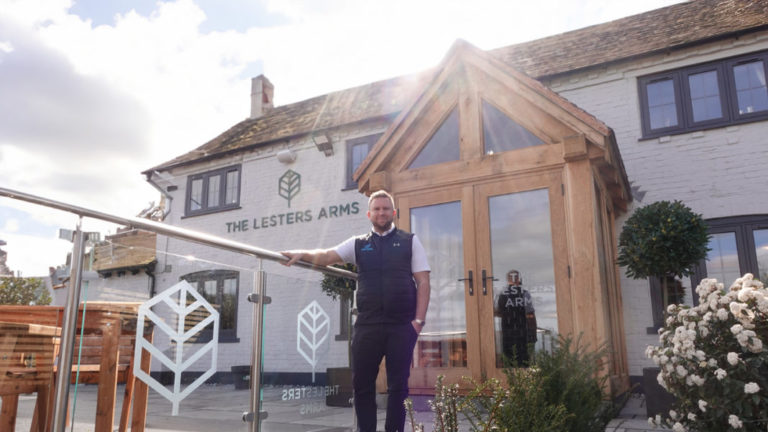The Scottish Government needs to change its “growth at all costs” business model if it’s to deliver its aim of a wellbeing economy, say the founders of Zebra Growth, one of the country’s leading ethical marketing companies.
According to the Edinburgh-based firm whose mission is to pave the way to a more regenerative economy by closing the knowledge gap between innovative marketing and social impact, recent Holyrood initiatives designed to aid high-growth scaling companies are sending the wrong message.
More focus, they say, is needed on creating an economy that places positive social and environmental change at the core of entrepreneurship.
The plea for a more balanced narrative comes after the launch of ScaleUpScotland2.0, a joint venture between the Hunter Foundation and the Scottish National Investment Bank which will provide support to high-growth Scottish companies with the potential to achieve a turnover of more than £100m.
Several leading business women criticised the programme for its lack of diversity and £10,000 entry fee.
Hannah Fisher, founder of Tongue In Peat, TL Tech Smart Home Solutions managing director Caroline Laurenson and Julia Brown, chair at Nodus Oncology, were among the dissenting voices.
First Minister Nicola Sturgeon has said that wellbeing is as important as GDP but Zebra Growth’s Moh Al-Haifi says the recent support package contradicts that stance.
“What we believe at Zebra Growth is that chasing the unicorn model is fundamentally one of the core issues within our capitalistic society. It goes against focusing on people and the planet,” he said.
“We’re not saying businesses should not be profitable, far from it. But having unicorn status as the goal also means we’re looking at how businesses fit in our financial markets rather than society.
“Zebra companies don’t grow for the money, they grow to achieve a bigger impact, to make the world a better place to live in.”
The new business support scheme follows the award of a £42m tech scaler contract to Codebase from the Scottish Government to create a network of tech industry hubs – one of the government’s largest ever investments in entrepreneurship.
“The tech scalers programme is a big slap in the face to the sustainability agenda of Scotland,” added Mr Al-Haifi. “I think the intention of the programme is wrong as it’s incentivising the wrong thing at this crucial time for the planet. It’s admirable to want to be the wellbeing economy of tomorrow but this isn’t going to help us achieve that.
“That’s where the disconnect is for us. The Scottish Government is putting a lot of energy towards scale yet at the same time Nicola Sturgeon keeps telling us she wants Scotland to be a world leader in sustainability.”
Zebra Growth managing director Lee Fitzpatrick insists smaller, more sustainable start-ups also have a key role to play in the entrepreneurial ecosystem and in solving the pressing problems facing humanity.
“We acknowledge what the Scottish Government and the Hunter Foundation is trying to achieve but we would argue that the biased focus on high-growth companies and the obsession with driving growth at all costs, comes at a cost to the wider Scottish ecosystem,” he said.
“We pose the question, what would it mean for the Scottish eco-system, our planet and society if we were to wean ourselves off our addiction to growth and start to place attention and investment into smaller, more sustainable start-ups?
“Investing our best minds and resources into high-growth tech is like putting a plaster over the wound. Business has a major role to play in finding solutions to the climate change and social inequality challenges we are faced with, and the current financial and governance models are failing us.
“We need to see strong leadership coming out of Scotland to celebrate more regenerative ways of building businesses. Hopefully inspiration can be found in the decision by Patagonia founder Yvon Chouinard to give the entire company away to fight the earth’s climate devastation.”
Securing funding is no guarantee of success and nearly 700 high-growth UK companies went bust in 2021, including prominent businesses such as energy supplier Bulb and Greensill Capital, which had former Prime Minister David Cameron as an advisor.
Zebra Growth, which has established a worldwide client base since its formation two years ago and benefits from a global and multilingual team and partner network, is urging high-level discussions on the pressing issue.
“It would be great if there could be more dialogue about this, a sharing of knowledge and skills to help social impact-focused businesses grow more quickly,” added Mr Fitzpatrick.
“I’ve emailed two of Scotland’s tech leaders, Mark Logan and Brian Corcoran, on the subject of a more ethical and inclusive approach and I’m hoping to hear back from them.
“It’s vital for us to ensure that the narrative around business growth is not biased. We believe that solutions are within open discussions and invite ecosystem leaders and government representatives to get in touch with us, too.”






